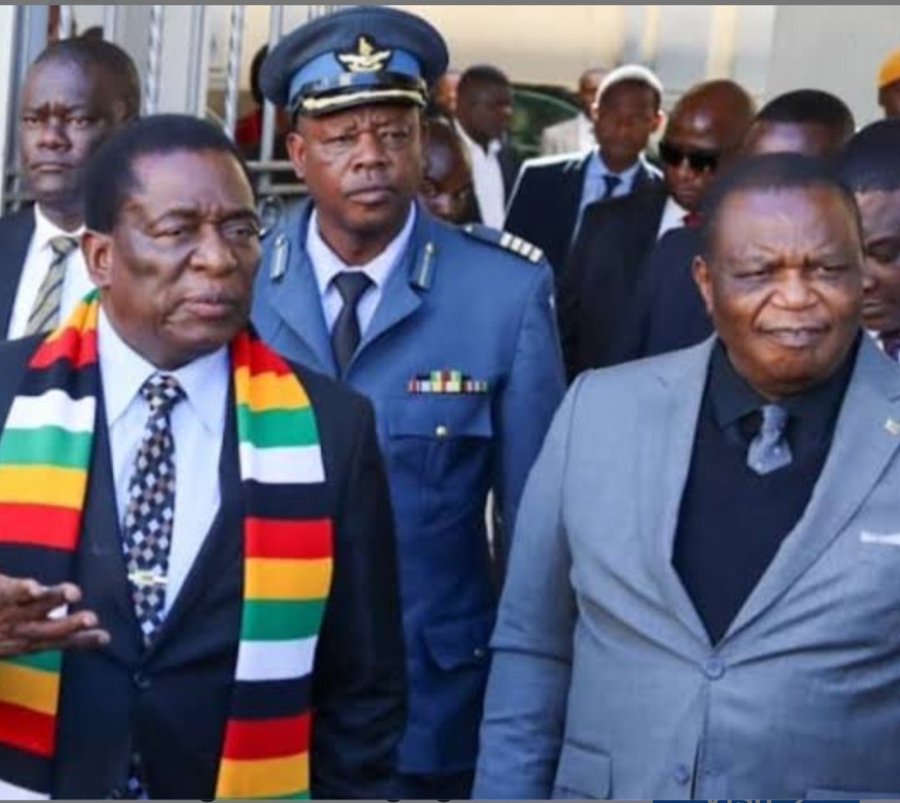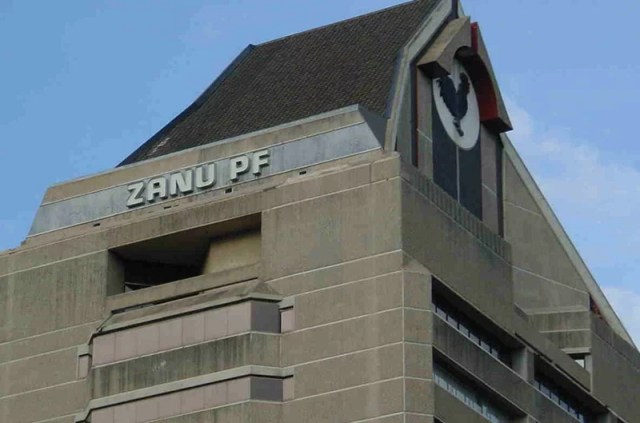ZANU-PF Reshuffle: Power Consolidation Disguised as Infighting.
In recent days, social media has been awash with debate over the reshuffle of ZANU-PF’s Politburo ,the part’s top decision making board. the most notable change was the demotion of Obert Mpofu from Secretary General to Secretary for ICT, a move many analysis argue was designed to weaken him due to his close ties with General Constantino Chiwenga.
This is reignite speculation about functional battles within ZANU-PF’s , particularly between Mnangagwa and Chiwenga since 2018 the public has been told repeated that the two are locked in a bitter struggle over succession control of natural resources and influence in the security sector but how true this is narrative?
While the perception of division inside Zanu-pf has persisted for years, it has not produced any meaningful change in government, in fact things have only gotten worse, with citizen enduring deepending poverty, collapsing basic service and an even worsening economic crisis .Yet people continue to cling to the false hope that functional wars will eventually weaken the party and create space for democratic renewal, While the perception of division inside Zanu-pf has persisted for years, it has not produced any meaning change in government. Citizens have been lift clinging to the false hope that functional wars would eventually weaken the regime ,creating space for democratic renewal yet dispute frequently reshuffles and public rumor, Zanu-pf has only emerged stronger with even tight grip on power, While ordinary Zimbabweans continue to face depending poverty, collapse public service and human rights abuses.
Even if Chiwenga were to replace Mnangagwa tomorrow, there is little reason to expect better leadership. Like Mnangagwa, Chiwenga is surrounded by elites whose main interest is consolidating power and looting resources.His leading role in Operation Restore legacy in 2017. Which ousted Robert Mugabe under the pretense of removing “criminals” around him, is proof enough. That operation was not about restoring legacy but about reinforcing Zanu-pf grip on power and preserving access to state resources.
The reality is that relying solely on parliament or on opposition MPs will not stop authoritarian drift. Zimbabwean Citizens must recognise that constitutionalism and democratic reform will not come from ZANU-PF’s internal battles. If anything, the recent Politburo reshuffle signals that the party is preparing for an even stronger grip on power, both against rivals within its ranks and against external challenges.
The call for electoral reforms and genuine democratic space must therefore grow louder. The lesson from the past seven years is clear that Change will not come from ZANU-PF’S faction politics,but from active and sustained Citizens engagement.


Every time ZANU PF makes changes, these so-called analysts start screaming about divisions. You can’t expect a revolutionary party to stay static. The reshuffle shows discipline and unity, not weakness. The opposition should learn from how organised ZANU PF is instead of writing negative propaganda.
It’s not propaganda, that’s what on the ground some leaders impose resolutions for their own benefits will the masses is suffering, shame on you.
A brilliant, sobering analysis. The writer exposes the myth that ZANU PF will ever reform itself. Every reshuffle is just a game of musical chairs meant to protect looting networks and crush accountability. Citizens must stop waiting for heroes inside the party and start building power outside it. Change will only come from an organised, vocal public
This is one of the most honest and well-argued pieces about Zimbabwe’s political illusion. For years people have hoped that internal fights within ZANU PF would bring change but as the author points out, the system is built to feed itself, no matter who sits at the top. Whether it’s Mnangagwa or Chiwenga, the script is the same: power first, people last.
The same tired narrative again that ZANU PF is finished. Yet the party remains in power and continues to deliver stability while opposition leaders fight each other. The article is full of wishful thinking meant to discourage citizens from supporting their government. Zimbabwe is moving forward, not backward